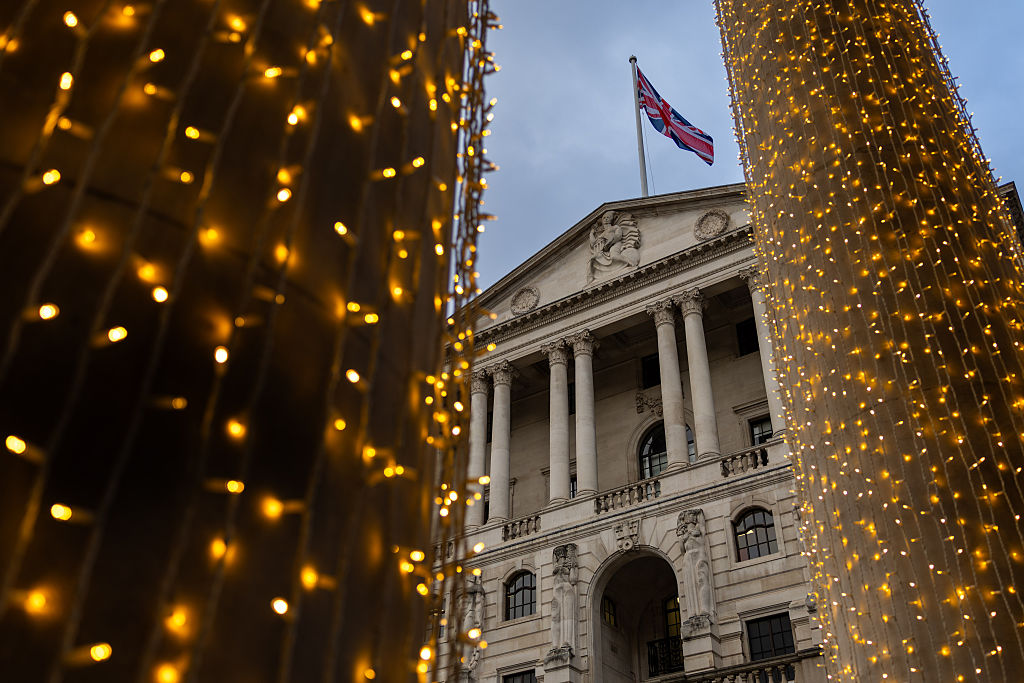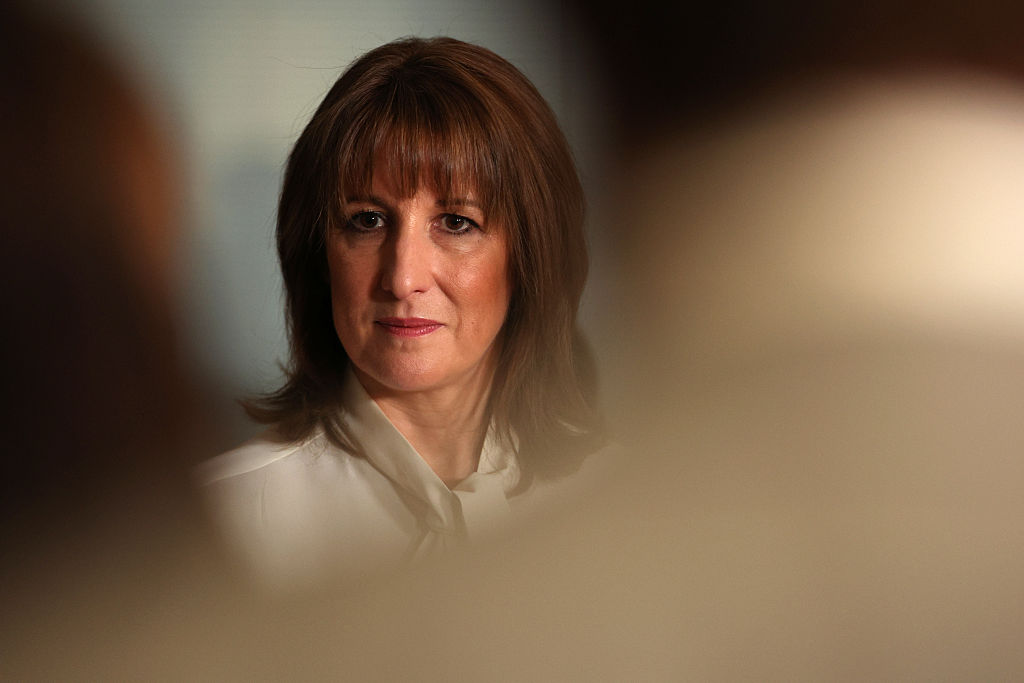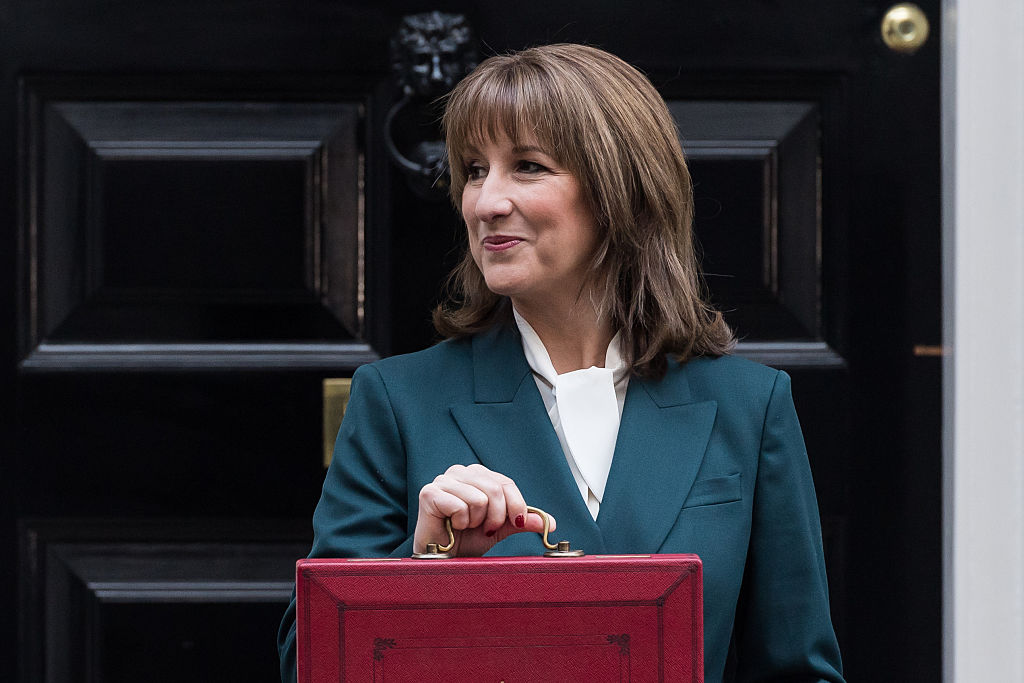Gilt yield surge puts Rachel Reeves under renewed pressure
Rising gilt yields mean government borrowing costs are reaching precarious levels


Get the latest financial news, insights and expert analysis from our award-winning MoneyWeek team, to help you understand what really matters when it comes to your finances.
You are now subscribed
Your newsletter sign-up was successful
Want to add more newsletters?

Twice daily
MoneyWeek
Get the latest financial news, insights and expert analysis from our award-winning MoneyWeek team, to help you understand what really matters when it comes to your finances.

Four times a week
Look After My Bills
Sign up to our free money-saving newsletter, filled with the latest news and expert advice to help you find the best tips and deals for managing your bills. Start saving today!
Gilt yields are on the rise once again, causing a fresh headache for Labour’s embattled chancellor of the exchequer, Rachel Reeves.
Yields on 10-year UK government gilts rose above 4.8% this morning (3 September), pushing up the cost of government borrowing. The yield on 30-year gilts has risen to over 5.7%, its highest level since 1997.
“The problem facing the UK is that the further bonds continue to climb, the larger the government’s costs are to finance the public debt,” said Matthew Ryan, head of market strategy at Ebury.
MoneyWeek
Subscribe to MoneyWeek today and get your first six magazine issues absolutely FREE

Sign up to Money Morning
Don't miss the latest investment and personal finances news, market analysis, plus money-saving tips with our free twice-daily newsletter
Don't miss the latest investment and personal finances news, market analysis, plus money-saving tips with our free twice-daily newsletter
To bridge the gap, Reeves may be forced to hike taxes higher in the Autumn Budget. This, says Ryan, risks “a deadly ‘doom loop’” of escalating taxes, subdued growth and ever-increasing government deficits that “could completely derail Britain’s economy”.
“We’re not there just yet, but all eyes will be on how chancellor Reeves and her team intend to proceed," Ryan added.
The rise in borrowing costs risks boxing Reeves in further given her self-imposed fiscal rules. The government is seemingly in a position where cutting expenditure will be nearly impossible, but raising additional revenue risks hurting economic growth or breaking manifesto promises that Labour made during last year’s election.
What are gilt yields, and why are they rising?
Gilts are bonds (debt) issued by the British government. Like all bonds, the income they pay is expressed as a percentage of their purchase price. This is referred to as the yield.
Yields and prices move in opposite directions, because the income they pay is fixed in nominal terms. So when gilt yields rise, it means the price of UK government bonds is falling. That makes borrowing money more expensive for the government.
“Gilt yields are an expression of bond markets’ confidence in the UK government,” said Emma Moriarty, portfolio manager at CG Asset Management. While international factors such as the weakening global economy as a result of Trump’s tariff policy have played a part, “the reality is that the government came out of the last budget round with wafer thin fiscal headroom”.
“Bond vigilantes appear particularly critical of what may be perceived as fiscal mismanagement from the government,” said Ryan, from Ebury. “The massive shortfall between spending and income [is] almost certain to force further tax hikes in the autumn.”
There are other factors behind the spike in gilt yields. Fred Repton, senior portfolio manager on the global fixed income team at Neuberger, highlights that 2 September marked the end of the summer holiday season for US investors following the long Labor Day weekend.
“There was a notable pick-up in new issuance in bond markets that may have surprised bond market participants slightly,” said Repton. “In fact, yesterday was the largest issuance day on record in Europe as a whole.” This surge in supply has clearly dented prices, but Repton cautions that “one should not draw too many conclusions from one extremely active day for issuance".
When is the Autumn Budget?
Reeves announced this morning that the 2025 Autumn Budget will be announced on 26 November.
“We must bring inflation and borrowing costs down by keeping a tight grip on day to day spending through our non-negotiable fiscal rules,” Reeves said in a video announcing the date.
The primary mandate within these fiscal rules is a government commitment to financing day-to-day spending through revenue alone, and only borrowing to invest, by 2029/30.
Rising gilt yields make this harder, because they increase the costs of servicing the debt that the government has already accrued. There is also an implicit need for the government to keep borrowing to finance day-to-day spending between now and the end of the target period, and higher borrowing costs will increase the costs of servicing this debt.
Unless there is an unexpected surge in UK GDP, that means Reeves will either be forced to cut spending or to raise more tax revenue in the Autumn Budget. Either approach will be politically fraught.
“The very public U-turn on proposed cuts to welfare spending showed that, despite the deteriorating fiscal situation, there is still no effective majority for cutting expenditure,” said Moriarty. But Labour promised during its election campaign last year not to raise taxes on “working people”, effectively ruling out any changes to income tax, employees’ National Insurance or VAT.
“Proposals to shore up the fiscal position have been centred on raising taxes in a way which won’t hit working people,” says Moriarty. “There is a real fear that these proposals – for example, a wealth tax – disincentivise economic activity for uncertain impact on revenues.”
How do rising gilt yields affect your money?
The UK government is regarded as one of the most reliable borrowers in the world – as are the governments of most developed nations. The UK has never defaulted on its debt, and there is an argument that it never would (the Bank of England would likely intervene to prevent a default ever occurring, though this would cause its own problems as it would increase inflation).
Gilt yields are therefore seen as the gold standard within the bond market and other bonds tend to be priced in relation to gilts.
Mortgage rates, for example, tend to be linked to gilt yields. Long-duration mortgages are typically tied to 30-year gilts, yields on which are the highest they have been since the turn of the millennium.
Get the latest financial news, insights and expert analysis from our award-winning MoneyWeek team, to help you understand what really matters when it comes to your finances.

Dan is a financial journalist who, prior to joining MoneyWeek, spent five years writing for OPTO, an investment magazine focused on growth and technology stocks, ETFs and thematic investing.
Before becoming a writer, Dan spent six years working in talent acquisition in the tech sector, including for credit scoring start-up ClearScore where he first developed an interest in personal finance.
Dan studied Social Anthropology and Management at Sidney Sussex College and the Judge Business School, Cambridge University. Outside finance, he also enjoys travel writing, and has edited two published travel books.
-
 Should you buy an active ETF?
Should you buy an active ETF?ETFs are often mischaracterised as passive products, but they can be a convenient way to add active management to your portfolio
-
 Power up your pension before 5 April – easy ways to save before the tax year end
Power up your pension before 5 April – easy ways to save before the tax year endWith the end of the tax year looming, pension savers currently have a window to review and maximise what’s going into their retirement funds – we look at how
-
 Rachel Reeves is rediscovering the Laffer curve
Rachel Reeves is rediscovering the Laffer curveOpinion If you keep raising taxes, at some point, you start to bring in less revenue. Rachel Reeves has shown the way, says Matthew Lynn
-
 Investing in forestry: a tax-efficient way to grow your wealth
Investing in forestry: a tax-efficient way to grow your wealthRecord sums are pouring into forestry funds. It makes sense to join the rush, says David Prosser
-
 'Expect more policy U-turns from Keir Starmer'
'Expect more policy U-turns from Keir Starmer'Opinion Keir Starmer’s government quickly changes its mind as soon as it runs into any opposition. It isn't hard to work out where the next U-turns will come from
-
 UK interest rates latest: December 2025
UK interest rates latest: December 2025Live Report The Bank of England’s Monetary Policy Committee (MPC) has cut interest rates from 4% to 3.75%
-
 Rachel Reeves's punishing rise in business rates will crush the British economy
Rachel Reeves's punishing rise in business rates will crush the British economyOpinion By piling more and more stealth taxes onto businesses, the government is repeating exactly the same mistake of its first Budget, says Matthew Lynn
-
 The consequences of the Autumn Budget – and what it means for the UK economy
The consequences of the Autumn Budget – and what it means for the UK economyOpinion A directionless and floundering government has ducked the hard choices at the Autumn Budget, says Simon Wilson
-
 Why UK stocks are set to boom
Why UK stocks are set to boomOpinion Despite Labour, there is scope for UK stocks to make more gains in the years ahead, says Max King
-
 Electric vehicle drivers to be charged new per mile tax from 2028
Electric vehicle drivers to be charged new per mile tax from 2028Electric vehicle drivers will be forced to pay a 3p per mile tax, as taxation will be brought closer in line with petrol and diesel cars